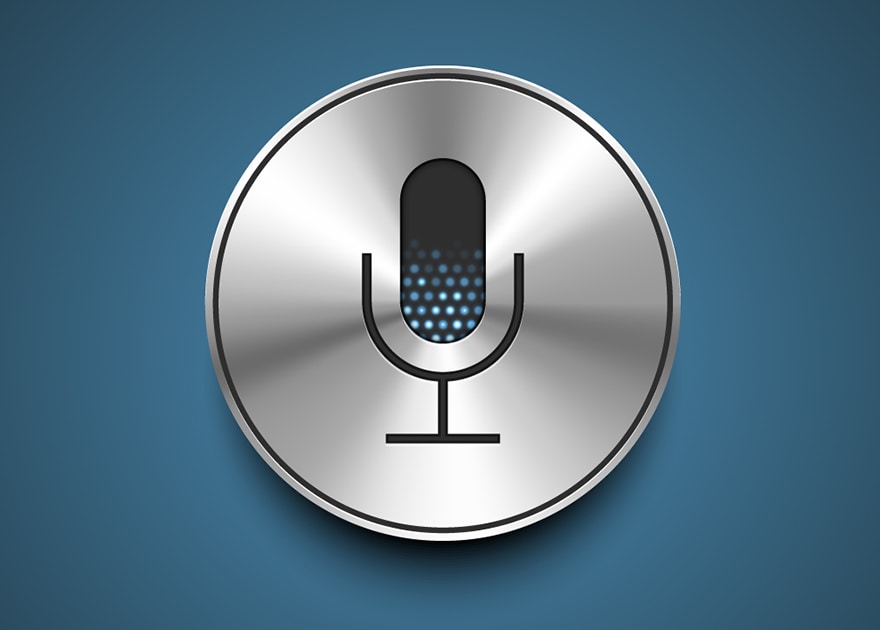For several years now, voice search has penetrated the daily life of Internet users without disrupting it. But does 2018 mark the beginning of this revolution? Are we at the dawn of the next great transition in internet research, as was the shift from desktop computers to smartphones? This seems to be what the great digital powers, the GAFA, seem to think, who are fighting a "merciless battle" to conquer this market.
This still effervescent market is first and foremost a story of technological mastery that has not always been there. One need only recall the performance of voice recognition tools ten years ago to be grasped by the efficiency of current voice transcription technologies available to the general public. This major technological breakthrough paved the way (or voice) for voice search, which has gradually emerged as the most convenient alternative input medium within predictive search tools such as Google Now, Siri or Microsoft's Cortana.
In this market, the advantage goes to Google. The search history, the emails within Gmail and the GPS position collected by the phone at regular intervals are all elements that allow it to bring a lot of information to the knowledge of the user, without the user even having to make a request.
Today, the paths of GAFA have crossed: Google first started with predictive search to go to the wizard, while Apple took the opposite path with Siri. They now find themselves on a playground that they will have to share with an a priori unexpected player on this market: Amazon.
Amazon was the first to draw with its intelligent speaker "Amazon Echo". The principle is simple: it's a speaker that will always listen to what's going on. As soon as the user uses a trigger keyword, "Alexa" for Amazon products, the speaker goes into active listening mode to deliver answers to the user. Basic features include Amazon product controls, features that we could describe as encyclopedic (Personality Information, Geography, etc.), productivity features (task list, timer, etc.) and third-party service control (home automation, music streaming services, etc.).
If Amazon was first on this market, Google quickly followed with a very similar concept, materialized by its Google Home speaker. The main differences are in the way it calls its assistant, "OK Google", as well as in the nature and spectrum of the answers given, which are quite broad due to its status as a historical player in search.
Finally, Apple has chosen a parallel path for its HomePod by taking a marketing axis centered on music and sound at a price 3 times higher than its competitors. Although its loudspeaker is functionally similar to the other models, this positioning is perceived by some analysts as a willingness to move away from the concept of an intelligent loudspeaker for which Siri would not be strong enough against the competition. Indeed, where Google and Amazon make a rather assumed and massive exploitation of their users' data, Apple has chosen to privilege the respect of its users' privacy. Siri is therefore not playing on an equal footing with its competitors.
The increase in the supply of voice assistants associated with the future commoditisation of uses should lead digital professionals to ask themselves the right questions. While some functionalities should be considered "native" and have no particular opportunity, others may prove to be worthy of interest, or even strategic.
First of all, the native features (reminders, timer, alarm clock, etc.) are totally under the control of the assistants and, at first glance, of no particular interest to the marketing professional. These features, however, allow GAFA to observe the habits and customs of their users.
Next, the interaction with a product or service. Voice assistants offer development tools (API, SDK, etc.) that allow digital professionals to implement voice command functionalities. Apple, Google and Amazon each have their own labelling program and the "Works with Google Assistant" or "Works with Homekit" pictograms are increasingly common on the packaging of high-tech products. Perhaps the most telling examples are those related to home automation. Systems such as the Philips Hue light bulbs or the Thermosat Netatmo, both Google Home & Siri compatible, allow you to verbally control the temperature and brightness of the room. These uses, which seem very innovative today, are likely to become commonplace: it is therefore advisable to think about using your product (or service) by voice from now on. Services such as Uber and Deezer have already started to invest in this niche.
I mean, the research. Oh, yes. Voice assistants also allow you to do searches. This is especially true for Google Home, which searches directly on its engine. If the opportunities are limited at the moment because of the absence of a screen, we should not neglect what voice search represents. Indeed, nothing says that tomorrow's Google Home will not be equipped with it (in holographic version?). What's more, let's not forget that voice search has already been available, for a long time, on smartphones. In their current form, these implementations represent a pool of millions of monthly searches that will increase over time. Although Google does not officially communicate on the subject, Gartner estimates that 30% of searches will be voice-based as of 2020. It should therefore be seen as a real SEO opportunity. In addition, it has been found that voice queries are longer than those typed on a keyboard. A "how to insulate my house" query is likely to turn into a "how to insulate my house" query once dictated to a voice assistant. It is therefore possible to work from now on with content that is more "problem" oriented than "keyword" oriented for a better performance on vocal requests.
It should be considered that voice is a mode of input that has improved significantly over time. Unlike intelligent speakers, which will have to find their place and demonstrate their usefulness to the general public, the functions of intelligent assistants (Siri, Google Assistant, etc.) are already natively embedded on billions of terminals in circulation and are becoming commonplace in everyone's daily life. In many situations, voice is faster and more convenient. It is therefore important to seize the opportunities offered by these new uses. As a first step, it will be necessary to identify potential applications for the use of your product or service by having voice search in mind when optimizing the SEO of your content. An exciting program for companies ready to revolutionize their model!
Caroline Faillet, Netnologist - co-founder of Cabinet Bolero (1)
(1) "Netnologist" and co-founder of the Bolero Law Firm, Caroline Faillet regularly shares its experience and participates in the debate on the challenges of the digital transformation. In 2016, she is the author of the Art of Digital Warfare (Dunod) - 2017 Prize of the Academy of Commercial Sciences.
A pioneer in the analysis of Internet user conversations and the collection of behavioural data, Bolero uses an innovative methodology to understand the influence of digital technology on audiences and to help companies defend their image and their business in this new environment.
Bolero works on the following themes: digital presence strategy, e-reputation and influence, digital transformation, digital performance and data-driven marketing, new business and digitalisation of the customer experience. Bolero is also an accredited training organization and its methodology is taught in prestigious professional programs such as HEC (Executive Education) or the Military School (IHEDN), dedicated to senior executives.
Login
0 Comments
Inline Feedbacks
View all comments












